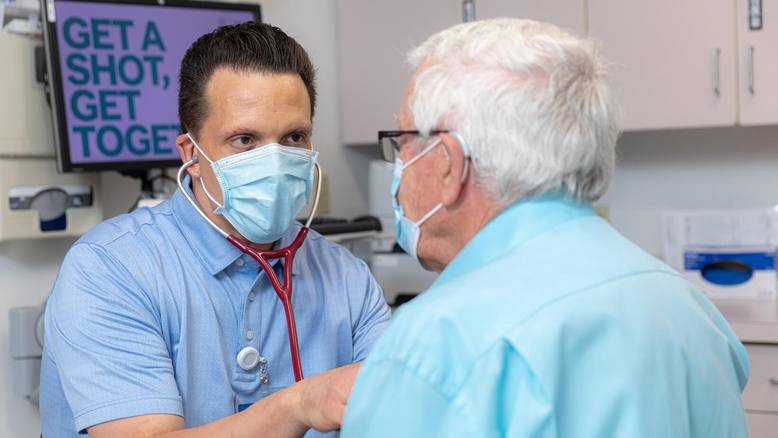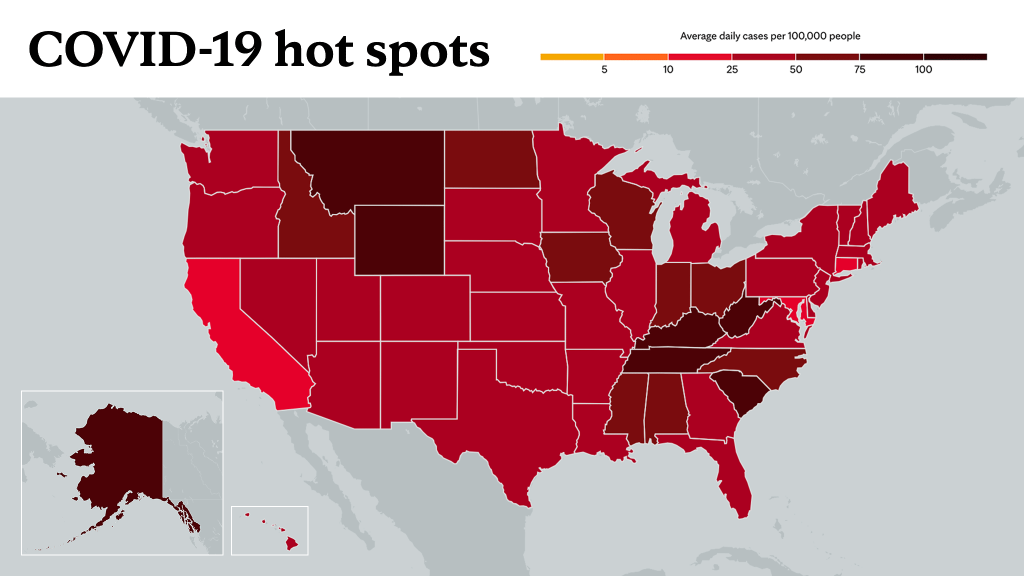
This week, the Food and Drug Administration issued an emergency use authorization for the Pfizer COVID-19 booster vaccine six months following completion of the initial Pfizer-BioNTech COVID-19 vaccination series for the following groups:
- People age 65 and older.
- People ages 18–64 who are at high risk of COVID-19.
- People ages 18–64 with frequent institutional or occupational exposure to COVID-19 that puts them at high risk of serious complications of COVID-19, including severe COVID-19. This group includes but is not limited to health care workers, teachers and day care staff, grocery workers, and those in homeless shelters or prisons.
Even though the Center for Disease Control’s Advisory Committee on Immunization Practices met on Thursday, Sept. 23, and did not endorse the booster vaccinations for the occupational exposure groups, including health care workers, CDC Director Rochelle Walensky, M.D., overruled this vote and recommended this group to be eligible for COVID-19 booster shots.
Under the current federal government program that supplies vaccine doses, Mayo Clinic is obligated to follow the CDC recommendations related to vaccine administration.
This means that the four populations eligible to receive COVID-19 vaccine booster doses are:
- People over age 65.
- People ages 50–64 with underlying medical conditions.
- People ages 18–49 with underlying medical conditions, based on individual benefit and risk.
- People ages 18–64 with frequent institutional or occupational exposure to COVID-19 that puts them at high risk of serious complications of COVID-19, including severe COVID-19. This group includes health care workers.
There is no guidance at this time for those who received Moderna or the Johnson & Johnson COVID-19 vaccines as their primary vaccination.
Booster vaccination to begin Sept. 24
Mayo Clinic plans to offer booster vaccines to eligible patients and staff starting Friday, Sept. 24. Patients who are 65 and older will be contacted through Patient Online Services and by letter.
Patients and staff at high risk of severe COVID-19 infection or who have underlying medical conditions such as obesity, asthma and diabetes, and where occupational exposure to COVID-19 would put them at high risk of severe infection will not receive formal communication from Mayo Clinic. If you fall into one of these categories and are six months past your initial Pfizer vaccination series, you should schedule an appointment online using Patient Online Services.
Eligible patients can call or use online services to schedule a COVID-19 vaccine booster:
- Arizona Department of Health Services
- Florida: 904-956-8700
- Rochester: 507-538-4040
- Mayo Clinic Health System in Northwest Wisconsin
- Mayo Clinic Health System in Southwest Wisconsin
- Mayo Clinic Health System in Southeast Minnesota
- Mayo Clinic Health System in Southwest Minnesota
In Rochester, if eligible patients and staff are interested in receiving their flu vaccination at the same time as their COVID-19 booster, Mayo is offering this combination the week of Oct. 4. View the Rochester schedule for details.
Information in this post was accurate at the time of its posting. Due to the fluid nature of the COVID-19 pandemic, scientific understanding, along with guidelines and recommendations, may have changed since the original publication date.
For more information and all your COVID-19 coverage, go to the Mayo Clinic News Network and mayoclinic.org.
Learn more about tracking COVID-19 and COVID-19 trends.








